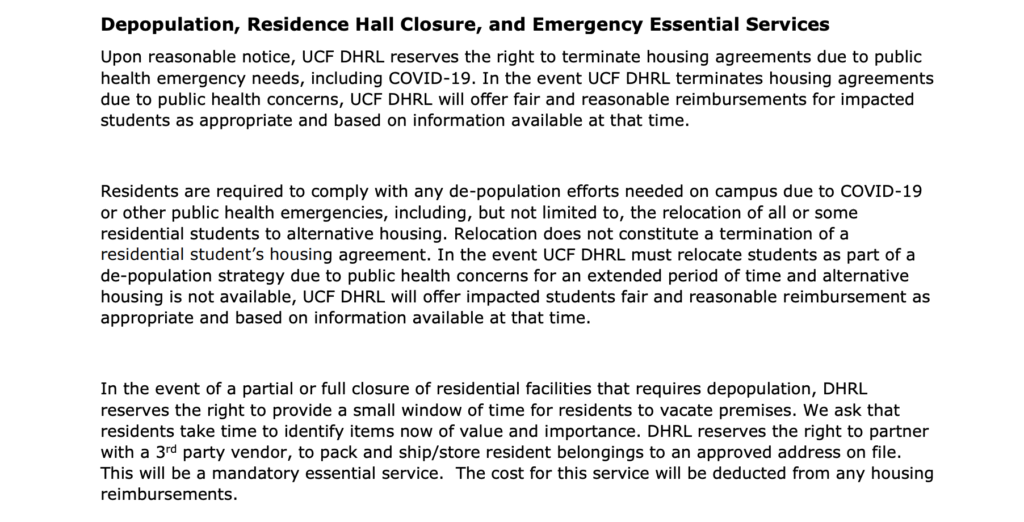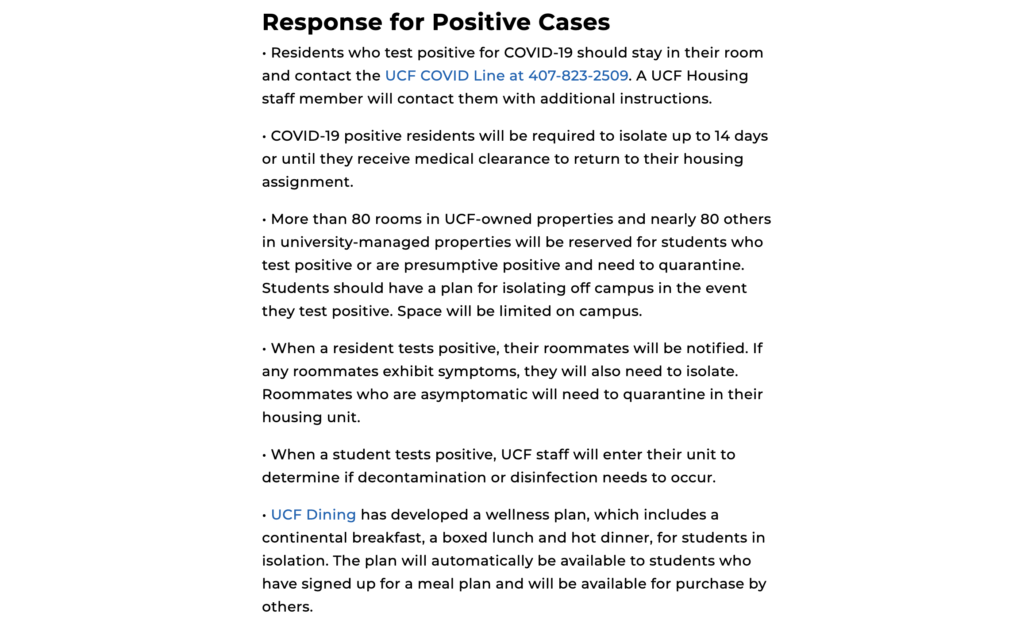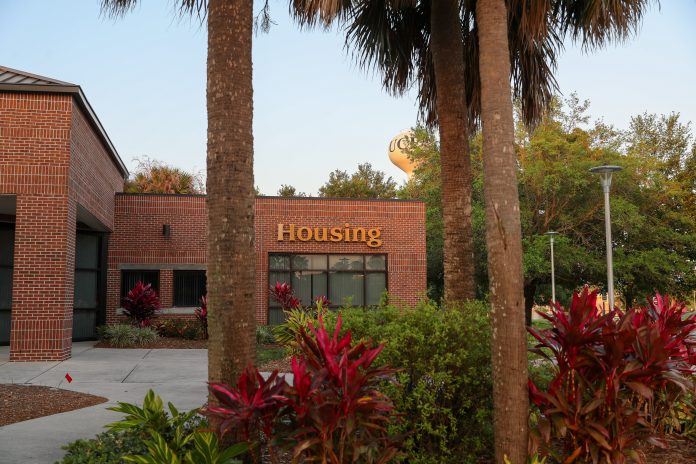About 7,600 residents have moved into on-campus housing, and UCF said it reduced its overall housing capacity by 484 beds.
UCF’s total student enrollment for the fall is expected to be slightly higher than fall 2019, which was about 69,500 students, UCF spokeswoman Rachel Williams said in an email.

President Alexander Cartwright addressed his position on UCF’s reopening its campus during Thursday’s Board of Trustees meeting.
“The short answer is that for many of our students, studying and living on campus are essential to their personal and academic growth, and also for maintaining their paths to graduation,” he said.
UCF said it will work with Orange County health experts and epidemiologists to update its response plan for COVID-19.
What happens if UCF has to transition to fully remote learning again?
UCF said it is prepared to move to more remote learning and remote working if it is necessary, but said unlike the spring semester, on-campus housing intend to remain open.
UCF Housing said in an Aug. 7 news release that it plans to remain open throughout the fall semester, as long as it is safe to do so.
“Residents were required to acknowledge they read a housing addendum by July 17 that outlines responsibilities and requirements,” the news release states.
UCF’s Housing said some examples include maintaining good hygiene habits, physical distancing, wearing a mask when necessary, completing testing as requested and disclosing COVID-19 infection status to Student Health Services.
Knight News requested the record of the document every resident was required to acknowledge and it can be read here.
Towers at Knights Plaza, NorthView, Rosen Apartments and UnionWest will remain at regular occupancy, UCF said.
UCF said many of these units offer single bedroom and bathroom units, or single bedroom and shared bathroom units.
The university converted 450 shared bedrooms in suites to single rooms for reduced occupancy in the Nike, Hercules and Libra communities.
UCF Housing said it plans to remain open — even if campus were to close — as long as it is safe to do so. Here’s what we know:
UCF has the right to terminate housing agreements due to public health emergencies, according to the Main Campus Community Living Guide last updated on July 20.
The living guide states residents are required to comply with any depopulation efforts. The guide states the relocation of all or some of its residential students to alternative housing is one depopulation effort.
In the event UCF requires its residents to relocate — and partially or fully closes its residential facilities — the living guide states that UCF Housing will provide refunds under certain circumstances.
“… [if] alternative housing is not available, UCF [Housing] will offer impacted students fair and reasonable reimbursement as appropriate and based on information available at that time,” the living guide states.
Relocation to alternative housing does not constitute a termination of a residential student’s housing agreement, according to UCF.
Knight News is looking into what UCF is considering alternative housing and what plans the university has considered for these scenarios.

UCF Housing said it reserves the right to partner with a third party vendor to pack and ship — or store — resident belongings.
“This will be a mandatory essential service,” the living guide states. “The cost for this service will be deducted from any housing reimbursements.”
What happens if there is confirmed cases of COVID-19 in UCF housing?
UCF’s COVID-19 website states students should have a plan for the possibility of testing positive for the coronavirus.
“Students should have a plan for isolating off campus in the event they test positive,” the release states. “Space will be limited on campus.”

If residents break the rules outlined in the addendum, housing staff will prompt them to correct their actions, the release states.

If necessary, UCF Housing said consequences will be faced through the conduct process.
This is a developing story. Check back with Knight News for updates.




